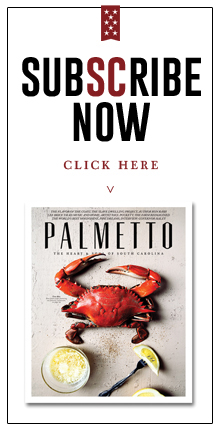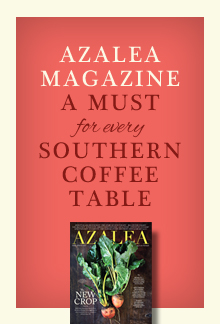
The Compass of a Community – Cooper’s Country Store
For generations, on the map of a changing world, Cooper’s Country Store has been true north for a community and for those who pause at the crossroads of the road less traveled.
For as long as he can remember, Cooper’s Country Store has served as a compass for Salters resident, Mark Tims. Despite the fact that he’s been eligible to vote for well over a decade, when he swings open the door of the two-story, white clapboard building, Russell Cooper nods to the man he refers to as “young Mark,” and from behind the cash register, Kelley Cooper smiles as though a beloved relative has come to visit.
Hollywood once created a television bar “where everybody knows your name,” and we all secretly wanted to hear ours shouted by the regulars sitting on the stools. We wonder in this day and age if that kind of place still exists, where time hangs suspended in the air, and people look out for one another. For over eighty years, on the stretch of highway linking Manning to Georgetown, Cooper’s Country Store has offered that variety of familiarity to those living in the small farm community and to untold thousands that make it a regular stop along the way.
“This store has been here my whole life,” says Tims, with a distinctive Williamsburg Country accent that is easy on the ears. “I use it as a landmark to give directions to my house. I used to come here with my dad, and now my little girl comes with me. They have everything, and if they don’t have it, they’ll try and find it for you. It’s that kind of place. They’re just real nice people.”
A steady stream of cars and pickup trucks pull under the second-story porch which shelters the gas pumps. There is no anonymous card reader to take your payment outside, and customers seem to welcome the excuse to go inside, where country hams hang inside a screened area, and today’s special of barbecue, red rice, and lima beans scent the midday air. The selection of hot foods changes daily, and Tims advises getting here early if you want to beat the crowd.
As he finishes up with a customer, owner Russell Cooper maneuvers between aisles stocked with a wildly varied range of goods to shake hands, apologizing for being so busy. It is not an unusual state for the store’s proprietor. Where else might the community go to mark a box of rifle bullets, a bag of concrete, two cured country hams, a half-pound of nails, and a quart of chicken bog off their shopping list with one stop?
Serving the community is a responsibility that Cooper’s family takes seriously, and family is at the heart of the store’s lineage. Cooper describes the offshoot that brought him to ownership. It is a song of the South that is rapidly fading from the music of modern times.
“The original store was built by Mr. Theron Burrows in 1937, when Highway 521 came through here. He was a cotton farmer, and his name is still in the window. My daddy’s brother married his daughter, and when Mr. Burrows died, my uncle took it over. Kelley, up front, is his daughter —and my cousin. I worked for him until he died, and then I took it over. Both my sons went off for college, and they’re with me now.”
“This was once a farming community with a lot of small farms,” he explains. “Tobacco farms, mostly. Now there are a couple of big farms and only a few small ones. The grocery business has dwindled, but hardware has grown, and we’ve added lumber. My sons, Russ and William, run that. We cook our own hogs every week and added the kitchen for the hot food. Other than that, we haven’t changed much.”
There is an authenticity to the worn, bare-wood floors and no frills displays that harkens back to a time when things were built to last —when we repaired things that were broken and passed things down within the circle of family. It seems likely that the tools, screws, nails, pipes, tie-downs, and wire on these shelves are meant to actually build something solid rather than simply replicate a Pinterest post. Washboards stacked against the wall have little to do with anyone’s abs—except for the exercise they might provide when used to scrub clothes by hand.
On simple wooden benches and a rocking chair in front of the cash register, folks sit and catch up with neighbors and friends who are are second, third, or even fourth generation locals.
Cooper chuckles at the information “pipeline” that runs directly through the store. “Everybody meets up here, and there are some pretty interesting conversations from time to time. People will come to me and say, ‘I’m going to tell you this, but don’t tell anybody.’ By the end of the day, I will have heard it from ten different people.”
Cooper is soon pulled away to track down an item located somewhere between the peanut butter and gallon cans of hydraulic oil. From the kitchen, barbecue sandwiches send out smoke signals that are immediately picked up by those waiting at the counter, and the line at the cash register grows longer.
Soon the seasons will change, and so will the faces of those passing through; with beach traffic giving way to deer hunters, and then the Thanksgiving and Christmas crowd. Bike Week will find motorcycles and leather-clad riders parked under the pecan tree. Time will be set aside on all their journeys to revisit favorite memories of this special place.
And for those who live in the community, as they have for over three-quarters of a century, the crowded shelves of Cooper’s Country Store will provide the material needs of their daily lives, and the white building on the corner at the crossroads will be the compass that points them home—to the place where everybody knows their name.
“I’ll be right back to pay for this, Miz Kelley,” the eternally young Mark Tims says, stepping outside the front door with a bottle of Orange Crush.
“I know you will, Mark,” she says, nodding in his direction as she rings up the next customer. “I know you will.”
It really is that kind of place.
By Susan Frampton
Recommended
-
Q&A with Chris Jennings / Executive VP – Spartanburg CVBApril 17th, 2018
-
Music of the ForestApril 16th, 2018
-
Chairman of the BoardApril 16th, 2018
-
The Compass of a Community – Cooper’s Country StoreNovember 21st, 2017
-
History in the Making – Drayton HallNovember 21st, 2017








